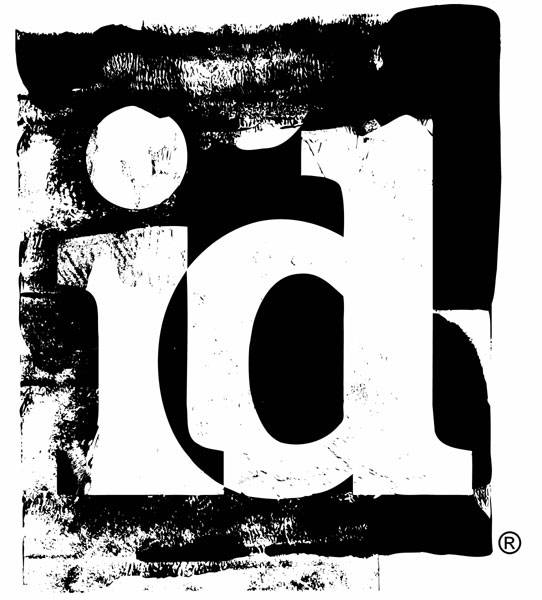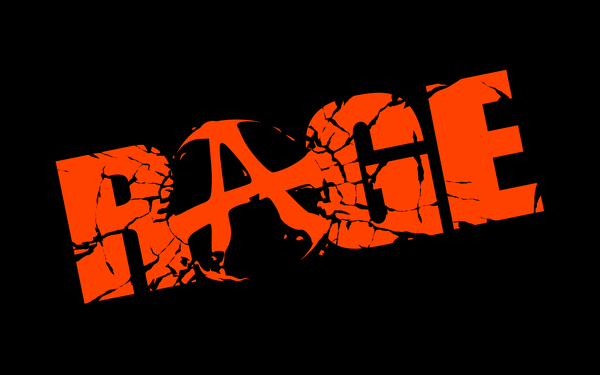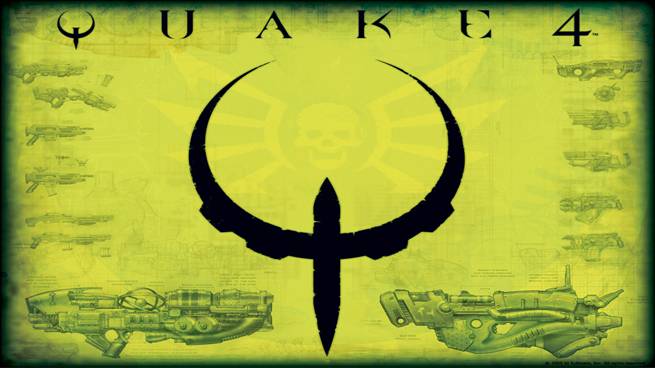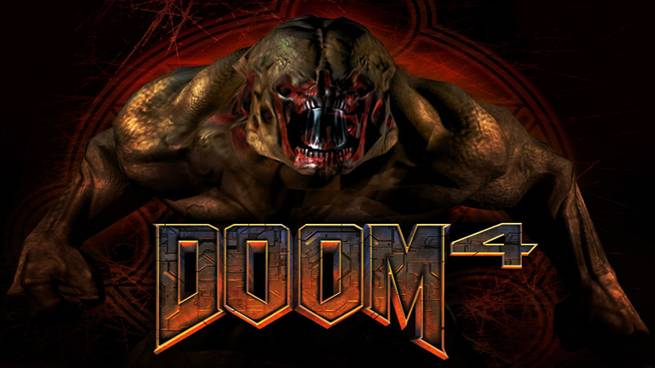Let me admit one thing before we you guys go ahead and read on the interview. This is perhaps the most comprehensive interview we have done on GamingBolt.
GamingBolt’s George Reith was fortunate enough to speak with Tim Willits, creative director on Rage. He was able to discuss various topics including Rage, Doom, Quake, PC Gaming and many others.
Please note that this is a written transcript of a spoken interview, and has been typed up in such a way as to reflect the flow of the conversation.
So, sit back and grab a can of coke, cause this interview will be well worth your time.

George Reith: Before we begin Tim, what is your exact job title at id?
Tim Willits: I am the creative director working on RAGE.
George Reith: Firstly I’d like to ask some general questions about id software and your work with them: Considering how much influence id have had with both their games and their engines, what would you say has had more of an impact on the games industry?
Tim Willits: Actually, in my personal opinion, I think our biggest influence has been Quake 1. I know many people may believe it was DOOM, but when you look at what Quake 1 spawned: Y’know ‘clans’, we never guessed that , ‘online communities’, we never guessed that, ‘dedicated websites’ to gaming were spawned from Aftershock, ‘competitive gaming as a sport’, we never guessed that, ‘the paradigm of client/server architecture’, yes I know there were MUD’s that people could log into on their BBS and they would run off a sever but, the real kind of action-orientated gaming with a client/server architecture was pretty significant and you know of course ‘the 3D world’. We’ve always done things to change the industry but, for me personally, Quake is it. Of course we also licensed that same tech.
George Reith: I was just thinking about how many FPS games there are that really owe their whole pedigree to what Quake did. I was also thinking about Quake II and the rail gun which was the first time a sniper rifle was used in an FPS, just one of those little things that’s pretty amazing when you think about it.
Tim Willits: Yes, like Jumping. John Cash, he went on to become the lead programmer on WOW so I always brag about that because he worked with me! John Cash was actually the guy who invented Rocket Jumping, by accident, and I was in the match where he did it. We basically… We were playing on the start level of Quake 1 and he had just picked up the red amour, or some amour, and he was in a corner and he was gonna die and he was like “you know what? If I’m dying, I’m taking you guys with me.” He looked down, fired the Rocket and popped up in the air and landed behind us; and ‘Rocket Jumping’ was born.
George Reith: Wow that is a fantastic little factoid right there. Just thinking of the Quake series or the DOOM series, they all spawned a lot of sequels and considering how the industry is so structured around sequels, what has made you go for a new IP with Rage as opposed to carrying on with one of the other franchises at id? I know they are happening as well but was it a difficult thought process with RAGE? Just coming up with a new series?
Tim Willits: Well yeah, ‘cause we started on a different idea, but we canned it and went with RAGE. So yes, historically we could have made the original DOOM and built on that tech and game and dished dead sequels forever and they’d be very successful. But for us it’s not about just turning up the thing that’s going to be the easy pay date. It’s about trying something different, trying something new, working with new technology and we felt that when we set out to make RAGE, we really needed to make it different. That is why it is so not like our other… It doesn’t follow the format of our other games: Yes, it’s a first person shooter. Yes, you are in those instances; fighting those bandits, it feels like a classic id software game but we’ve broken from traditional moulds: We don’t have the death-match that we invented, we have a different death-match. It’s not just a straight corridor shooter, we have this kind of wasteland that you can go around, it has a linear story but it’s not a linear game. So we’ve really tried to break from the mould, so what I say to people is: ‘RAGE is definitely an id software game, but it’s definitely not an id software game.’ You know what I’m saying?
George Reith: I know what you’re saying, by the same guys but not in the same vein. The news about you standard bread and butter conventional online multiplayer mode not being a part of RAGE was quite interesting. There is definitely something else in there that is unique to RAGE. Do you think it is difficult to sell a game that doesn’t have the conventional multiplayer that people are expecting?
Tim Willits: Well every time we’ve made a game, and I mean from 1992, people have always said to us ‘is it going to be difficult to sell a game that XYZ?’For instance, people thought we were crazy to require video cards/ hardware graphics for Quake III. Everyone told us we were crazy. DOOM III; the whole paradigm shift of hi-poly/low-poly, no one had ever done that before. Heck, we couldn’t even hire artists because no one had ever done that before. Even going from DOOM to Quake, there are so many instances and times where people have said ‘oh, no one has ever done this before’ or ‘this is so different, why are you doing this?’ and that is just what we ‘cause we love what we do. trust me, it would have been way easier, I promise you it would have been way easier [laughs] to just go ‘yeah, you know what? We’re id, we invented death-match, let’s do the same thing!’ But what the spirit in the innovative thing with that? You know what, let’s do something different. Let’s do something that fits better in the RAGE world, let’s do something that not everyone else is doing, let’s do our own thing. And we’ve always done our own thing, so let’s do it. And our multiplayer mentality is; we added some things that, while we were working on the single player game, we thought would be fun to do with someone else: Like the vehicle combat, we thought ‘wouldn’t that be fun?’ – Yes. Then we added vehicle combat. And then the co-op mode, everyone loves playing with their buddies and everyone loves playing split-screen, so it’s like ‘would that be fun?’ – Yes. Then we used the co-op to extend the game’s fiction and then dive a little deeper into the rich universe that is RAGE. So that was kind of our mentality. Our mentality was not ‘follow the same paradigm,’ our mentality was ‘do something better.’ But you also have to think about all the other titles we have. I mean we have Quake, which is a huge IP, we have DOOM, which is a huge IP, why do the same multiplayer in every one of them?
George Reit: It’s a good point, I’m just thinking how commendable it is that you guys are trying to do something different in a world where you get however many hundreds of titles every month featuring space marines and online death matches and that kind of stuff. It’s interesting when you are talking about RAGE the way its ideas seem to have grown organically during development. I’m just curious as to how much has changed since you first started developing RAGE: What ideas have been kept, what’s been changed through the development cycle?
Tim Willits: One of the things about working on RAGE, and about working on a new IP, is that when you are working on something and you run across something that’s fun you can work some fiction into the game, like the’ wing sticks’. That was never planned but we wanted to have some kind of long range, wasteland kind of weapon and we had to target people and chop of their heads and get a get shot and its… it’s my favourite weapon in RAGE! It was never planned! Even a lot of the gadgets and components you use to put things together that was not in the original plan. But it sure is fun. The mind-snare darts, which is what we showed at the BMG event, we have an ammo type; each of the weapons has multiple ammo types, one of the ammo types which goes with the crossbow is the mind control-dart, or mind-snare dart, and basically when you shoot somebody you kinda control them, they’ll struggle but you can move them around but then they blow up or you push a button and they blow up and it’s like ‘this is fun’! And it’s like; someone came up with the idea, we prototyped it, we thought ‘this is cool’ and let’s just make it an ammo type with the crossbow, we’ll use the crossbow – this is awesome! So, your right, there were a lot of organic moments to RAGE that came on after we started production that were fun, that worked out well and we made a place for them. Which is really exciting about a new IP, ‘cause we can do stuff like that, were not constrained by rules that we established years ago. So a good part of RAGE stayed, kind of the essence of it, but there are also lots of neat things that organically grew to deposit themselves.
George Reith: I’m curious to see, from what we know about RAGE at the moment, how much is going to change between now and when it actually winds up coming out. What’s being tinkered with at the moment?
Tim Willits: I can tell you buddy, between now and when we ship; ain’t nothing changing. We’re polishing it and we’re getting it done but definitely the last changes have been finalised. And, we developed the technology at the same time – it’s taken us a long time to make the game; just because we’re trying to get the technology worked in and see how it works and build in all the cross-platform groups. So we’ve had plenty to proto-type and design some cool stuff.
George Reith: It’s interesting how RAGE is the first game you have developed in-house since DOOM III. Do you think that gives it an advantage over games that are outsourced to other companies? Do you think the in-house development method’s the right way?
Tim Willits: Yeah, absolutely. I mean; one of the reasons why we worked with outside companies is we had too many ideas, we always wanted to make new technology – which takes years longer than licensing some other technology and we were forced to work with outside developers just cause it took us too long to do everything ourselves. Which is one of the main reasons we joined the Bethesda as it allowed us to build our DOOM team that is currently working on the next DOOM title with the same technology that we’re building RAGE with. So all the mistakes we made, all the struggles, the extra years of development; those guys aren’t going to face because they have stuff that already works. So from our studio as a whole, the public will see games come out significantly faster than they did in the past. Plus we’re not working with outside developers; after we finished DOOM III we spent a year working with Raven on Quake 4, we spent significant time working with splash damage on Quake: Enemy Territory, we started development on another game which we threw away and started on RAGE. So those are also distractions which take away from our mission, which is to make great games internally.
George Reith: When you were mentioning DOOM III, seeing as you have Matthew Jake Costello returning as a story consultant for RAGE, I’m just curious about your thoughts on storytelling within games as a medium. Do you think they should have their own style of stories or do you think they should take from cinema or books?
Tim Willits: Taking from cinema and books is definitely the way to go. Of course they should have styles and the fact that their interactive so, of course, with the things that you do in a game can ultimately change the story. That really is the ultimate goal of storytelling in video games. We haven’t quite made it there yet. I haven’t played a game where you can change the stories as you play. But, that’s definitely on the horizon. And there have been some prototype titles and some academic interactive games that try to do that so that’s really… they’ve laid the foundation for that in the future. But, as a good starting point, taking cues from novels and movies is definitely a good place to start. But you will see, as our industry matures, that our story telling ability will be greatly changed because you can affect the outcome of the story.
George Reith: The world of RAGE and its wasteland setting seems really interesting, it’s a setting that has quite a rich history within sci-fi; that kind of post-apocalyptic wasteland. Are there any specific influences in your design of the game world in RAGE?
Tim Willits: Yes, you had Fallout 3 come out and Borderlands, which actually takes place in another world, and the reason that we went with sci-fi is that we wanted to do the kind of vehicle-wasteland-combat feel… Let me back up: We were able to build these larger environments and instead of walking through them, we wanted to drive through them and whenever you’re driving through something you want to do it with muscle cars and you want to have guns on these muscle cars. So from here you can start to narrow your focus and then you look at Mad Max: The Road Warrior movie, but we also like sci-fi elements like the guy who invented the BFG, we like cool things like that. So if you have sci-fi elements, muscle cars and guns then there is only one setting you can do that in and that is how we came up with this world. But the RAGE world is not about surviving the apocalypse; it’s about doing cool shit in an environment that fits with the story and the cool shit you’ve been doing and in that setting it works so well because it allows us to have fun and make creative things like ‘wing sticks’, but it also grounds the story in this real-world type environment, so that’s how we came to that post-apocalyptic setting.
George Reith: With the driving and such it seems that RAGE is taking influence from other genres, aside from the first person shooter, like you have the racing the elements and some RPG elements with the inventory system and such. Was this a decision you had from the outset or did it just happen, was it a progression?
Tim Willits: No, that was one of the impetuses of… The impetus of RAGE was ‘do more than just run and gun’. It was our plan from the beginning to add these elements that we’d done before to expand the game play. We’ve evolved as game developers, the fans have evolved, and to put RAGE in a single genre is difficult. I think the press want to call this RPG, RTS, first-person… but I think gamers just want cool, fun stuff to play and RAGE can be one of those cool, fun things to play.

George Reith: It’s been said that RAGE won’t be supporting dedicated servers on PC and it seems that that is happening quite a lot. As dedicated servers are quite PC orientated, do you think gaming in general is focusing on PC less nowadays and more on consoles?
Tim Willits: Yes. A lot of the big game companies, I mean look at epic with Gears, a cross platform title. Valve just released Portal 2 this week, you play it on steam first but my 360 copy’s showing up in a day or two. Historically, PC-centric developers are looking at the cross-platform environment as a way to… essentially it’s a business thing; you make only PC games and you’re not subscription based , it’s a hard sell. I mean, piracy is way up, interest is down in classic shooters; something on the PC… I mean, a lot of people play Call Of Duty on the 360. As the landscape has changed, we as developers need to react to that. When we set out to make RAGE we had shared technology that crossed lots of different platforms and it made more sense to us to go with the non-dedicated server direction, which again is something we basically invented in action gaming.
George Reith: The engine ‘id Tech 5’ looks like it’s going to make cross platform development easier, just in general, with optimised resources for cross platform. Do you think there’s any merit to exclusive titles these days or do you think it should all be about the cross-platform?
Tim Willits: It should be cross-platform, in my opinion. It’s the only way to go; yes, the first person developers have huge incentives to keep people from making cross-platform titles. I mean, look at Halo, look at Gears Of war, look at Killzone. Those big titles; only one platform. But if you can mix cross platform games; PC, 360, PS3, you hit a huge audience. And for us releasing this title as a PS3 title, and it’s actually a pretty hot PS3 title, is very exciting because, as you know, we’ve never really supported anything under Sony. Yeah, we’ve licensed our games out to them and their various platforms, but if you’re a hardcore Sony fan with the the play station 1,2,3 then it’s possible that you’ve never played an id Software game. Because our old games on the Sony platforms really weren’t that great and for millions of people id Software is a new studio, they may be surprised that we are so freakin’ old! So that’s really exciting for us to tap into markets and fans and audiences that may have never experienced our games.
George Reith: With ‘id Tech 5’ it seems like there’s a lot of focus on making development easier in general. Would you say hardware improvements in the industry, increased graphical capacity and such, are making it easier or harder to make games?
Tim Willits: It’s defiantly making it hard. It’s harder in the sense that it requires more resources, more people and more talent. Each new technology is significantly more difficult to develop for than the last technology. But, the output is amazing. There are things that we’ve done to make our lives easier, there really are, but when it really comes down to it, when you’re making super hi-poly models and super hi-resolution textures and you’re programming really intricate AI, y’know it takes some pretty crafty people and it takes us a long time to do it. And it’s so funny, we always have people that say like ‘this developers just lazy ‘cause they’re not doing XY and Z’ or ‘these people are just taking the easy way out ‘cause they’re not doing this or that ‘ and it is not easy to do anything (laughs) y’know? And sometimes we do things that actually make our lives more difficult, but yes it has become harder to make games.
George Reith: What was the biggest challenge you encountered whilst making ‘id Tech 5’? I’m sure there were numerous, but what was the biggest?
Tim Willits: Making the art that can really shine as tech. Y’know, the AI’s great, the physics are great, the vehicles are great but really harnessing the power of the artists, that was the most rewarding because now our artists can just be artists instead of being artists in cages. But, to move to that kind of way of thinking was defiantly not easy.
George Reith: I was really concerned when I asked that question you were going to throw out some kind of really technical language and I’d get confused.
Tim Willits: You’d need to interview John Carmack (Technical Director for id Software) for that. I’m the creative guy I talk about spirit and soul.
George Reith: That’s fine with me, let’s talk about spirit. I’m not sure if it’s a project you’re directly related to but there has been a lot of anticipation for how DOOM 4 is going to be using id Tech 5, is there any information about the development of DOOM 4 you want to share with us?
Tim Willits: Oh boy (laughs). All I can say is; it’s gonna be awesome. Unfortunately I cannot so more than ‘it’s gonna be awesome.’
George Reith: A project you’re probably more inclined with which I’m sure you won’t want to share any info with us on is… there have been a lot of vague rumours about new Quake games that might be running id Tech 5. Anymore concrete news you want to throw our way?
Tim Willits: I’m not sure where you got that news from but I can tell you that nobody in this building has been working on any new quake games. We’re focusing on RAGE and the other team is focusing on DOOM. We have the Quake live project, but again that IP is very important to us… that’s all I can say about that.
George Reith: There have been rumours of a Quake III Arena sequel as well and with the recent XBLA port of Quake Arena is there any truth to these speculations?
Tim Willits: No, those are defiantly speculations. But If I was ever stuck on an island with only one game, it would be Quake III.
George Reith: So would say that Quake III is the best game that id ever made then?
Tim Willits: I would say RAGE is the best game id’s ever done but the game that is closest to my heart Quake II and DOOM III
George Reith: Any reason why those two games stand out for you?
Tim Willits: Quake II was just awesome. At the time it had huge single player, the death match was a little more forgiving – a little more for the masses. I know there’s been debate for years ‘what had the better rocket launcher?’ Quake I, Quake II, Quake III? But Quake II is still definitely my favourite game.
George Reith: So you’d take Quake II over DOOM III then?
Tim Willits: Me personally? There’s more in DOOM III than people realise. (pauses for thought) Yeah, I’d take Quake II. I’d take both, I made both so I can say that.
George Reith: I’m just curious, because there’s been such a growing interest these days in retro style games and remakes coming out on XBLA, PSN, smartphones etc, have id Software been drawn to that kind of market?
Tim Willits: Well, we’ve always released our older games on the iOS devices and we’ve always, like quake III on the XBL, we’ve always taken advantage of our old titles and our old games on new platforms but ultimately we want to make new stuff; we want to make great stuff and that’s looking forward and not looking back.
George Reith: Speaking of old games, what’s the chance that we’ll ever see Commander Keen make a return?
Tim Willits: (pauses) That’s more of a John Carmack question. It’s not high on my list of things to do.
George Reith: Talking of these old games, one thing I find interesting is the way that your engines and software tend to go open-source after a while. This has always been something that id has done, what is the thinking behind that?
Tim Willits: John Carmack has always been keen on giving back to the community. He’s the guy that really invented modding. There was no game that you could mod before DOOM, that I’m aware of. I could be wrong but I’m pretty sure that he invented it. And the fact that he’s always given out source code, old engines, to allow people to explore, learn, see what they’ve done… It’s a great philosophy that John has helped grow in the industry and it’s a very charitable philosophy and we’re always excited to see what people do with our engines, once they are old. But our old engines are still plugging along, I mean there’s Modern Warfare II; if you watch that and you look at the very first screen you see, at the very bottom it says ‘id Software’, ‘technology provided by id Software’ and it just brings a warm glow to my heart when I see that.
George Reith: Just before you go, is there anything about RAGE that we might not have heard already that you want to announce?
Tim Willits: There are no world exclusives, but it’s definitely important for people to realise that it’s more than just your typical running gun game and people really need to experience it. It’s not a short game. Many people nowadays buy these games, play them for four hours and it’s done in single player and they play multiplayer. This is an epic single player game and there is a lot of content and a lot of variety and we’re very excited to get it in people’s hands.
George Reith: Will we see any more of RAGE at this year’s E3?
Tim Willits: Yes, it will be at E3, definitely.
It was a pleasure to speak with Tim Willits and we really appreciate giving his precious time out of his busy schedule and special thanks to Tracey from Bethesda for setting up the interview.
















